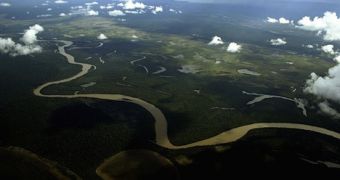Presently, northern Brazil is slowly but surely turning into a battlefield between the will of various energy companies, on the one hand, and the will of conservationists and local people, on the other.
The reason for this feud is as follows: a large consortium of energy companies is planning on having a dam complex built on the Xingu River in the Amazon basin. Preliminary reports estimate that, at the time being, a staggering $16 billion (about €12.8 billion) are standing by to jump-start this project.
Should we listen only to what the afore-mentioned energy-companies have to tell us, this initiative would appear to be a welcomed one, as the Belo Monte dam complex is thought to be the world's third-largest hydroelectric project and quite capable of supporting Brazil's flourishing economy.
However, environmentalists and indigenous communities argue that such a project is to have devastating effects both on the ecosystems presently found here, and on the local people's lifestyle, seeing how considerable surfaces of rainforest will be flooded to accommodate the dam complex.
As e360.yale.edu informs us, what is even more disturbing is that, if the rumors are true, the countries of Ecuador, Peru, Colombia and Bolivia will soon find themselves faced with similar situations, as more hydroelectric power stations are to be built along the Amazon basin.
In spite of the fact that hydroelectric power plants are much more environmentally friendly than coal plants, for example, it is our opinion that this does not offer a valid justification for destroying some of the world's most complex ecosystems.
As paradoxical as it might seem, this dispute between green-heads and representatives of energy companies silently takes place in the background of what is supposed to be a world-wide event directed at preserving our natural world.
Thus, this June, the city of Rio de Janeiro, Brazil, is expected to host this year's United Nations' conference on sustainable development.
Therefore, it's safe to argue that, while world leaders and representative of the private sector gather up to discuss ways of reducing poverty and of making sure that our natural world is as safe and sound as possible, real problems occurring quite close to them somehow remain unnoticed.

 14 DAY TRIAL //
14 DAY TRIAL //